Rape and war
The men who assaulted her killed the child she was carrying in her womb
Natasha
“The physical wounds I no longer see, but I'm still startled by any noise, I have insomnia, and panic attacks. It is a scar on the heart”
Seven armed men, Séléka rebels, entered her home, murdered her husband and father and raped her in front of her five children. The sixth, who she was carrying in her womb, almost at the end of the pregnancy, was stillborn two days later. All she has left is a photograph of the dead baby, full of bruises: suffering the horror before birth.
"A rape is like an illness, or like an accident: it can paralyze you, it can disfigure you, or you can die. And if they don't kill you, you survive"
It was a neighbor who found her and took her to the hospital, and who took care of her children while she was being treated. Four years later, she continues to struggle to overcome the attack. She explains her recovery process as like getting out of a sewer: "I can still do good things."

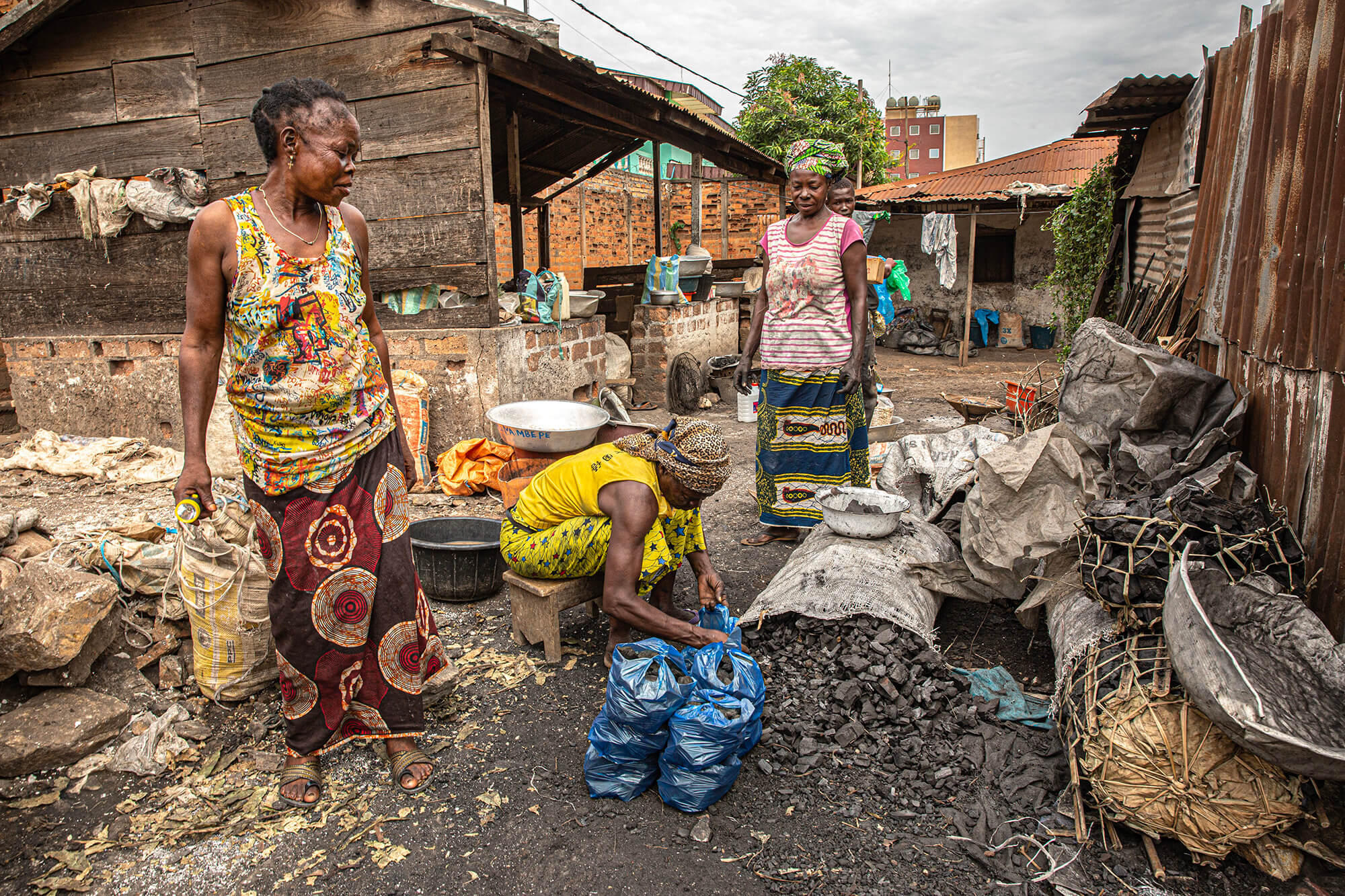
Poverty
The Central African Republic is the country with the second lowest GDP per capita in the world ($460) and life expectancy barely reaches 50 years. People live in neighborhoods of adobe houses without lighting or sewerage, where dirty water from latrines muddies the floor. All of this in a phantom state, inherited from colonialism. It was France's colonie poubelle (trashcan colony) and, with independence in the late 1960s, it ceded power to Jean-Bédel Bokassa, the military man who had himself crowned emperor in a lavish ceremony that cost millions of dollars. But the country is still tied to the old metropolis by its currency, the CFA franc.
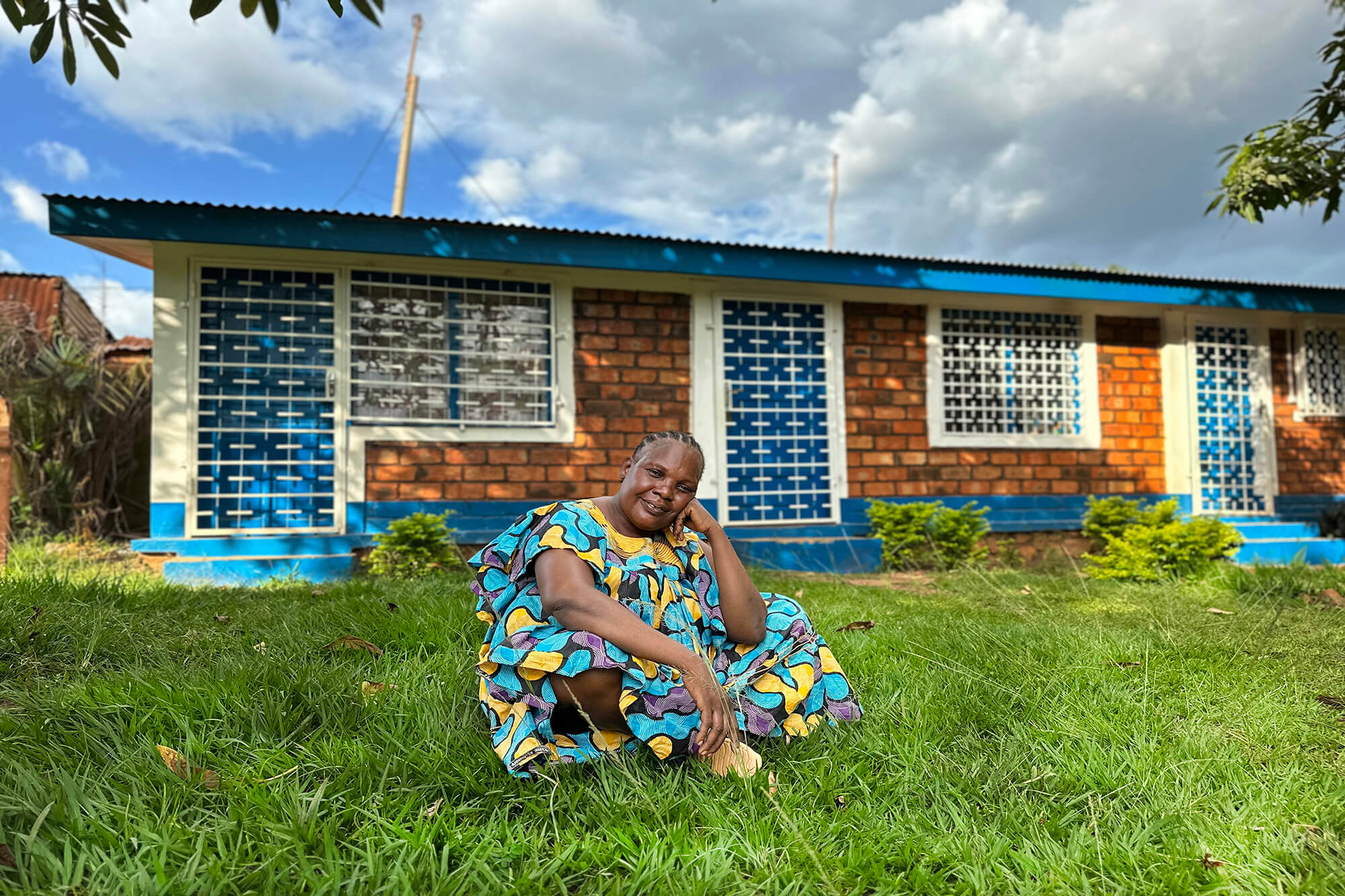
Stigma
She has founded an association to support the victims
Euphrasie Yandoka
“We cannot forget, but we can break the silence”
Four Séléka militiamen raped her as she fled from Bouca, her hometown, in the center of the country. "They were armed, they beat me, tore off my clothes and did whatever they wanted with me... I went into a coma." As is the case in many countries, women who suffer rape face a double sentence: they are blamed, repudiated by their husbands and made the object of ridicule. She only dared explain it to her mother: "She told me to keep quiet, that I would be the shame of the family..."
"What they have done with our bodies should stir everyone"
Although they have everything stacked against them, there are those who have begun to break their silence. Euphrasie Yandoka, founder of an association to support women and girls who are victims of sexual violence (ANAF), wants her story to be known. "If we don't talk about it, it will never end," she says with her eyes wet with anger. Sisterhood was what pushed her to speak out: to find other women, whom she refers to as sisters, who had been through the same thing.
"Sometimes I don't want my 11-year-old daughter to go to school: I'm afraid they'll do the same to her"
The activist's hell did not end there. Two years after the first attack, she was raped again, but now the executioners were others: anti-Balaka militiamen. "I identified the leader of the group that raped me. But I didn't want to report him because he has now joined the armed forces and can come and kill me at any moment." Criminals change their hats with each shake in Central African conflict. And the sexual violence continues. "The scar on my womb still hurts me today. But now it is part of me, it is part of my body. We have to move forward: we have to talk." Her children are her support: "I was moved when the little one told me that he is proud of me".
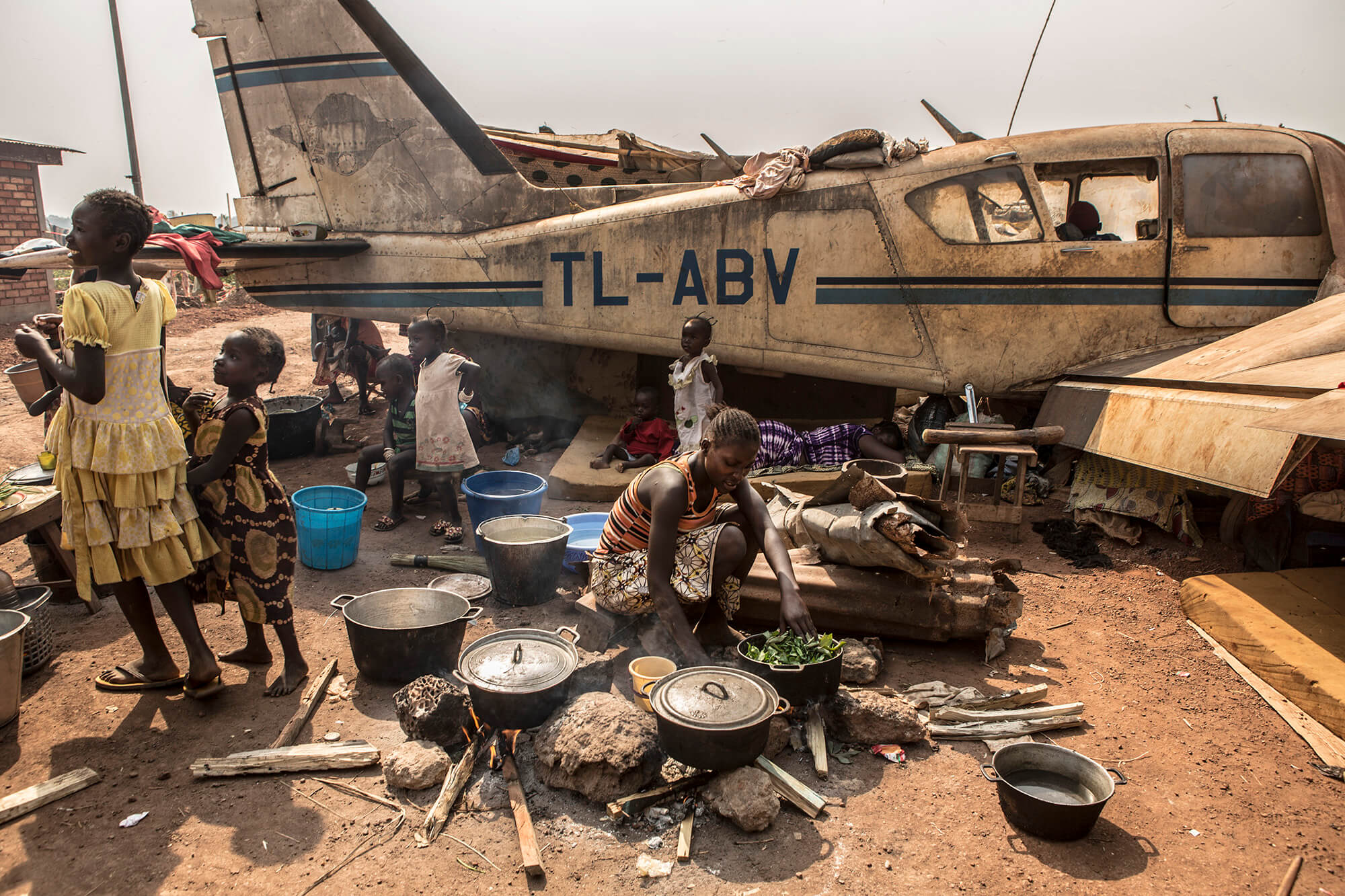
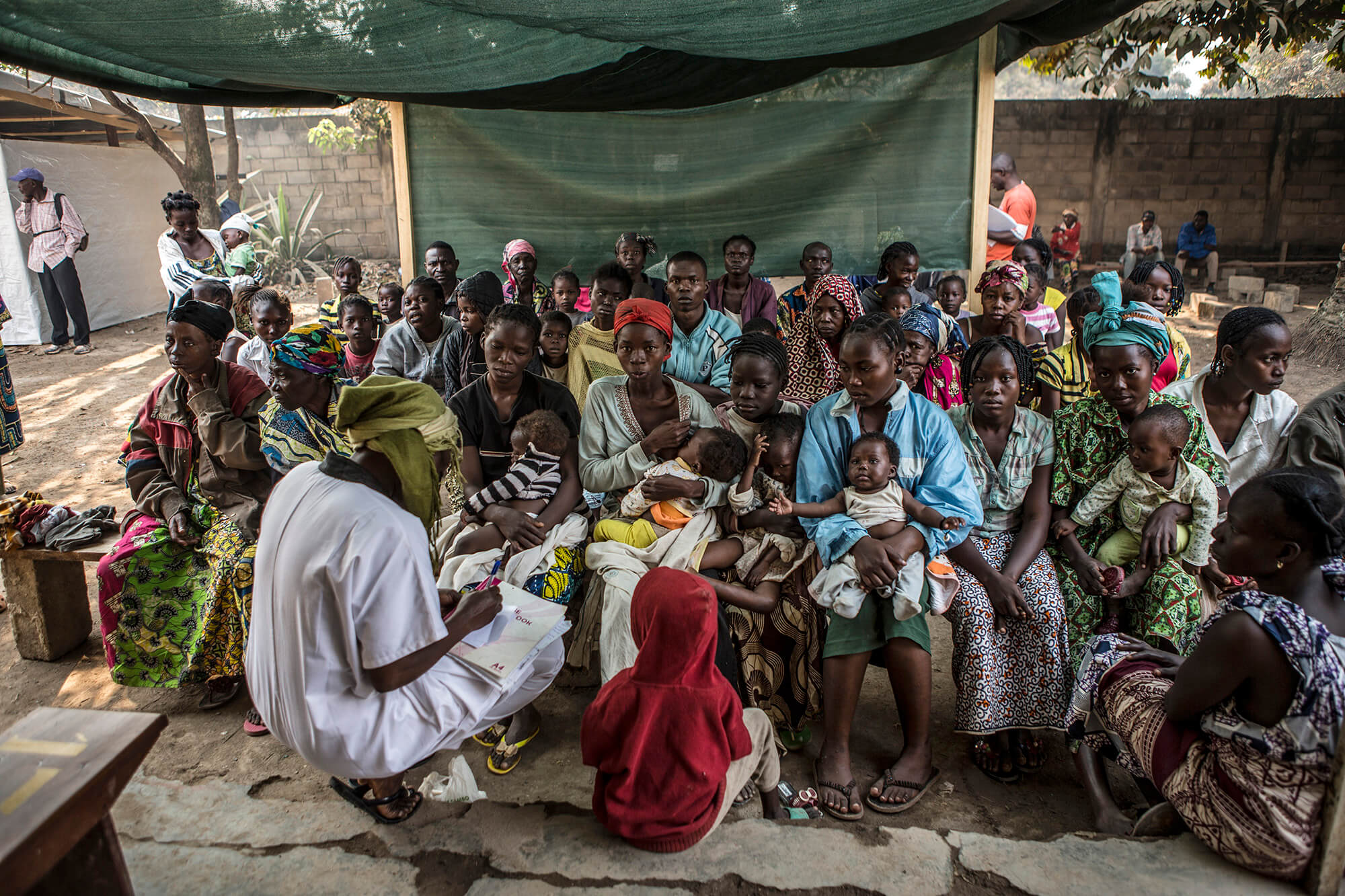
War
The current crisis dates back to 2013, when the Séléka rebels came to power in a coup and committed all kinds of atrocities. In the face of their abuses, anti-Balaka militias emerged and the violence has continued to this day, now with factions that had fought on both sides uniting to fight the current government. Taking advantage of the chaos, Russia entered the Central African powder keg in 2018, with Wagner mercenaries arriving as "peacekeepers" and now guaranteeing military support to the government in exchange for natural resources. Sexual violence has become a public health problem in the country. All of the armed actors are accused of perpetrating rapes on women and children: the groups of rebels and bandits who hide in the forests, the regular army that fights them, Wagner's Russian mercenaries and even the international forces of MINUSCA, the UN mission deployed in the Central African Republic since 2014. The culture of patriarchal violence also ends up permeating life outside the conflict, within families and communities, as MSF data confirm.
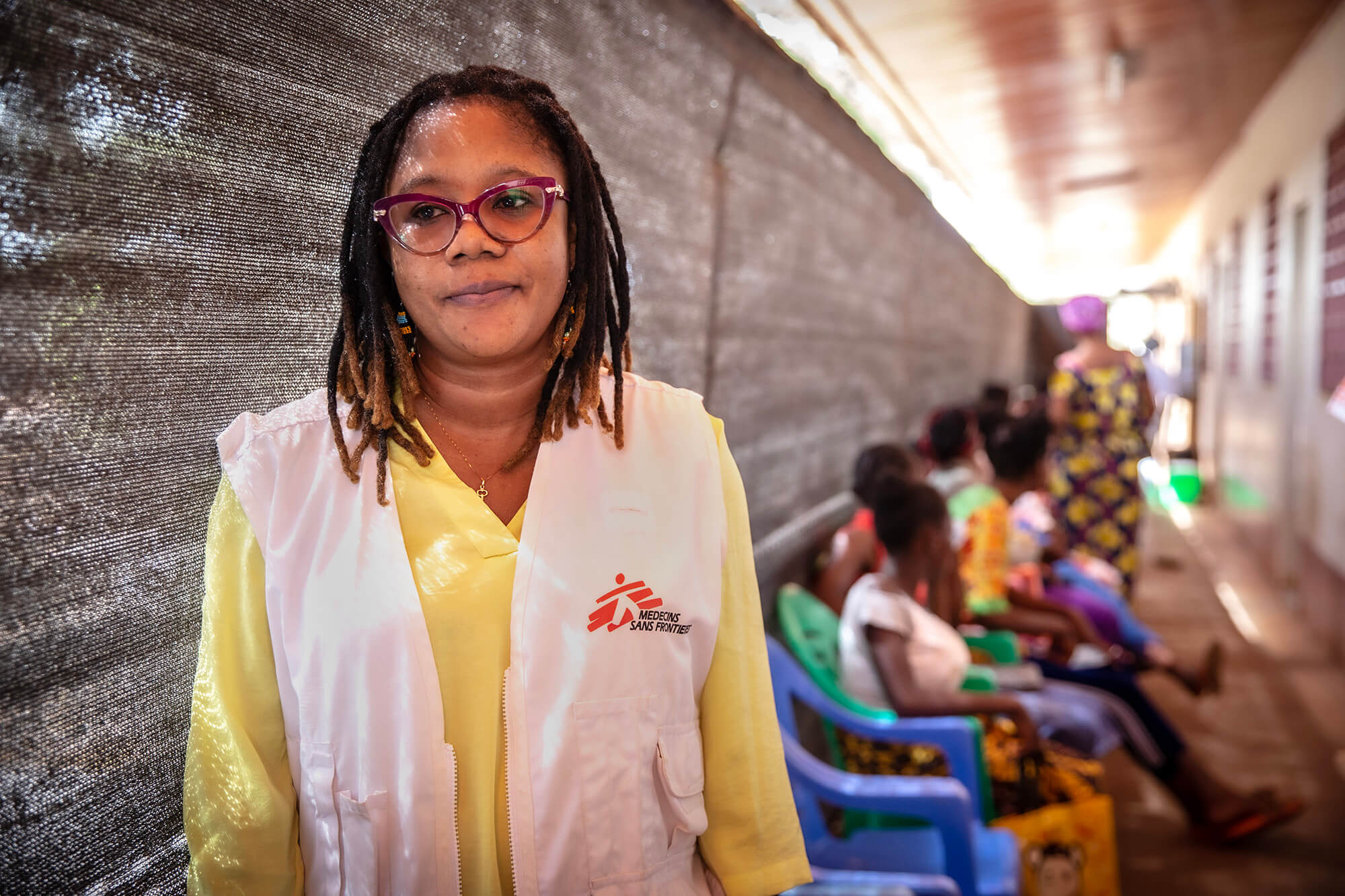
Resilience
A midwife who has also suffered sexual violence and now helps victims
Marie Laurence
"It happened to me too, and explaining it helps other women"
Marie Laurence coordinates a team of midwives at the Tongolo center, where Médecins Sans Frontières has treated 12,600 people who have suffered sexual violence over the past five years. In a small garden complex in the center of Bangui, they offer free medical, psychological, social and legal care to the victims. She knows well how to approach it because she experienced the same to her own flesh, in her native country, the Ivory Coast.
"They were drugged: I could tell by the way their tongues tingled"
The midwife worked at the maternity hospital in a remote village. One day three armed men appeared there and took her to the forest: "They did what they wanted with me, I was a sexual object in their hands and then they wanted to kill me", she says. Then came the ordeal: she couldn't have sexual relations with her husband, she washed herself many times a day because she felt dirty, she couldn't breastfeed her son and she had to quit her job. "It was like being dead. And every day at nine in the evening, the time I was raped, the images would come back to me. Everything would happen again in my head, like an alarm clock."
"I am the example that everyone is exposed to sexual violence and that you can recover"
When she learned that the men who had raped her ended up in prison ten years later, she found strength to get out of the well. Her therapy has been to train professionally in the treatment of survivors of sexual assault: "I understood that I didn't have to hide anything, that sharing what had happened to me could help other women."
"In the local language, Sango, there is no word for rape"
Working with the victims, Marie Laurence has developed her own strategy, which she shares with other midwives in Tongolo: “We welcome them with a smile and we don't start by asking them to undress or explain what happened to them: that would be too abrupt, too brutal. When they tell their story we look into their eyes; we don't pick up the pen until they've finished. And we make them see that having come here to ask for help is already a feat." First interviews sometimes last more than two hours. "It is not easy for them to recognize the nature of what they have suffered. In fact, in Sango [the local language] there is no word equivalent to rape: they resort to French using the words viol or violence sexuelle or the euphemism coucher avec [to go to bed]”
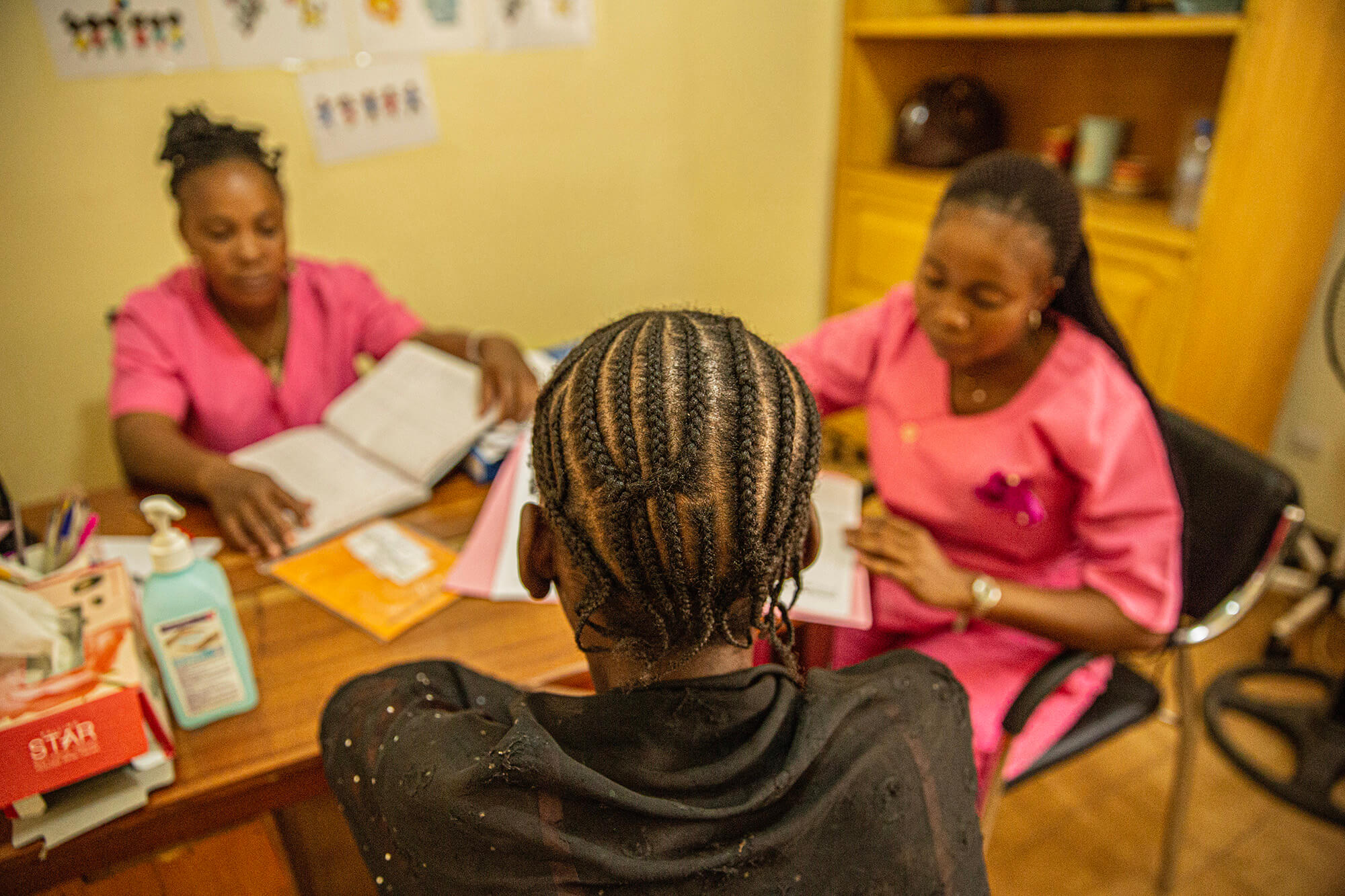

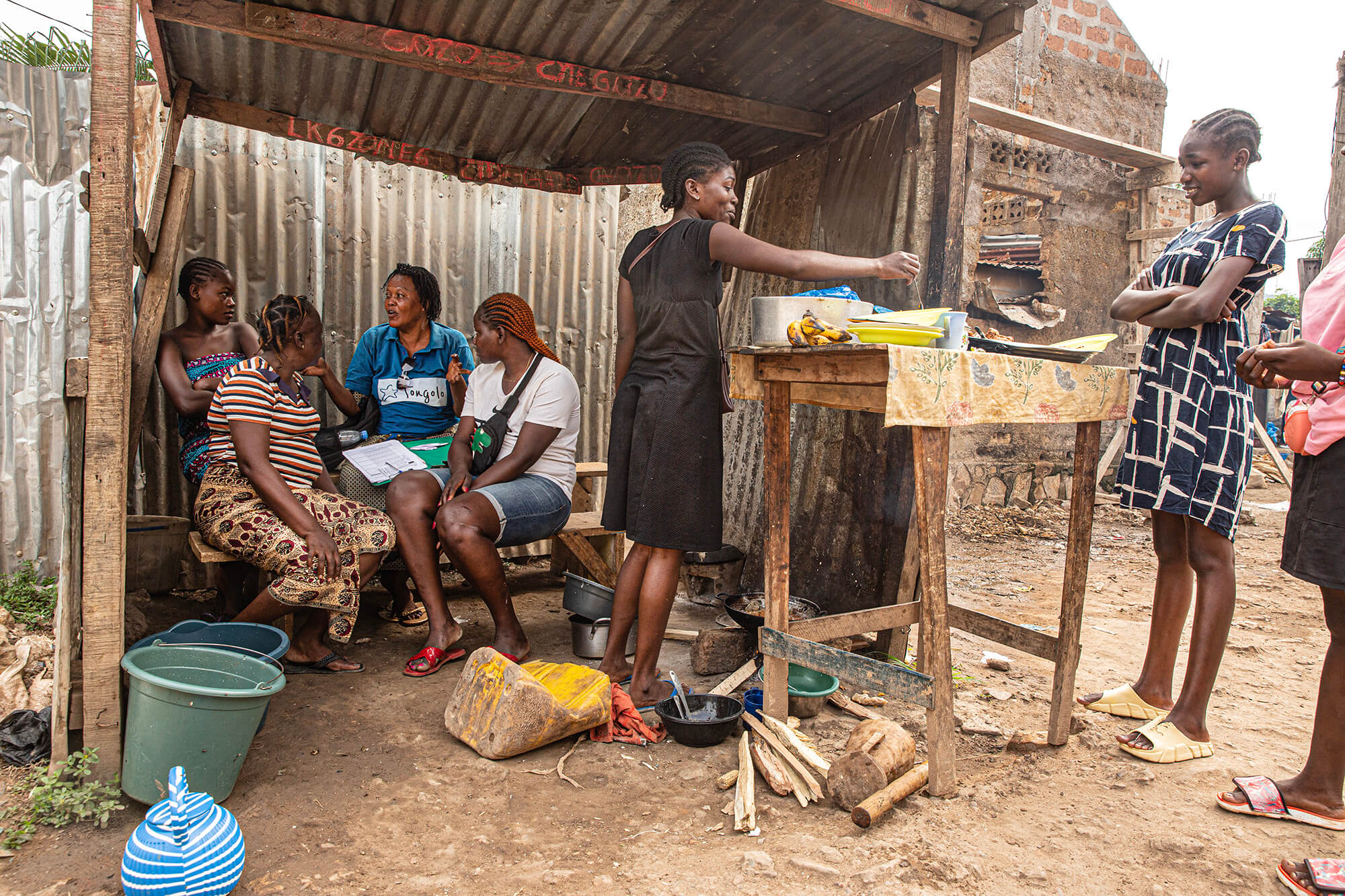
Recovery
In Tongolo, they check injuries, work to prevent the spread of HIV, syphilis and other sexually transmitted diseases, and also vaccinate against tetanus or hepatitis. The first 72 hours after sexual assault are key for medical treatment, but only one in three victims goes to the center within this period. That's why MSF has teams of street educators and broadcasts radio spots reminding people that after suffering a rape you need to seek immediate help.play_circle
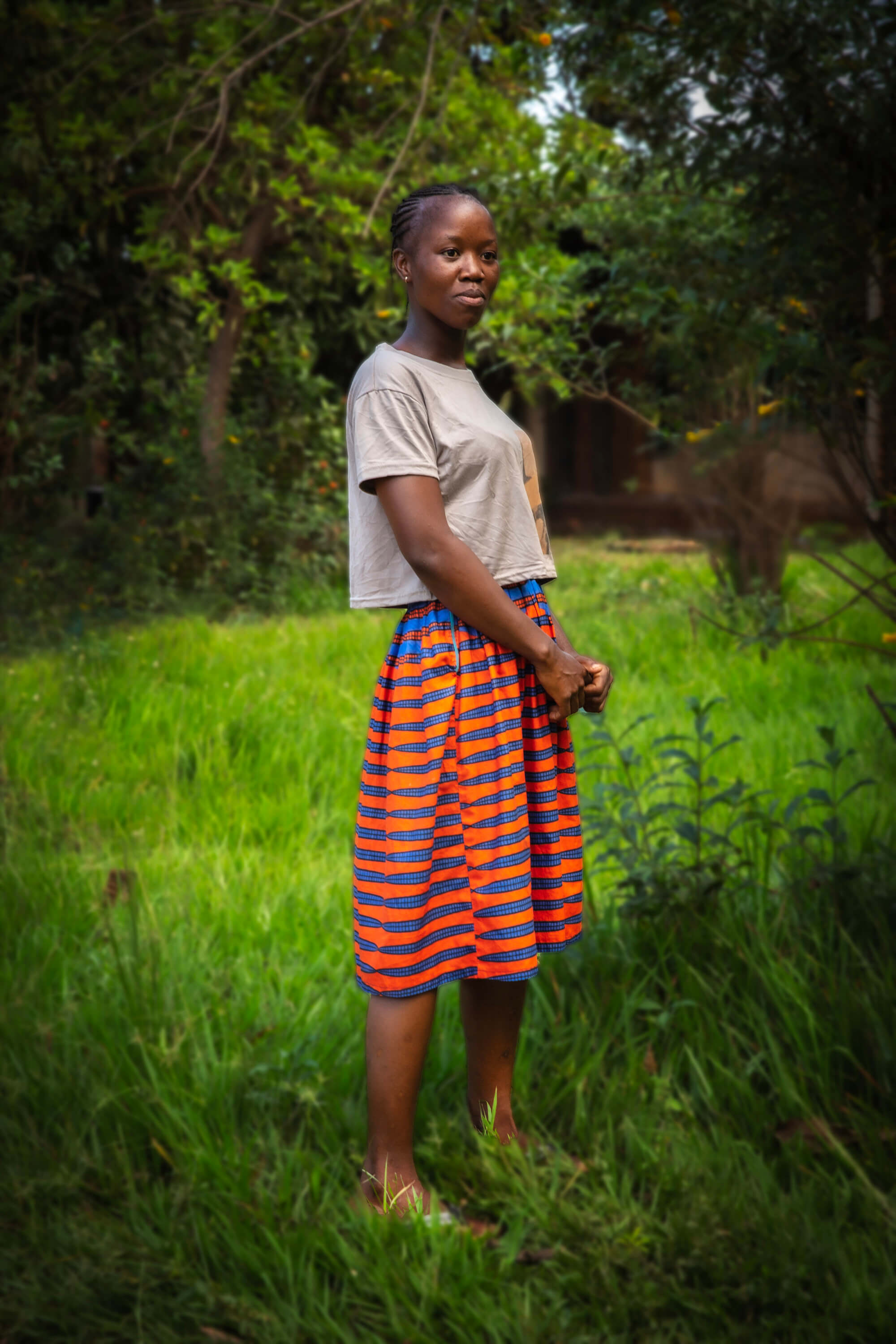
Sexual violence in the community
She was raped at age 11 when she went to collect wood
Lidia
“My parents told me I was finished”
In the capital Bangui, far from the combat zones, sexual violence is rampant, for example against girls and young women who survive by hawking mangoes, bananas, coal, wood, cakes or smoked fish. They have to leave their homes early in the morning, when it is still dark, to fetch the goods, sometimes traveling long distances, and they are easy prey for predators. Lidia was assaulted when she was 11 years old and went looking for firewood to sell.
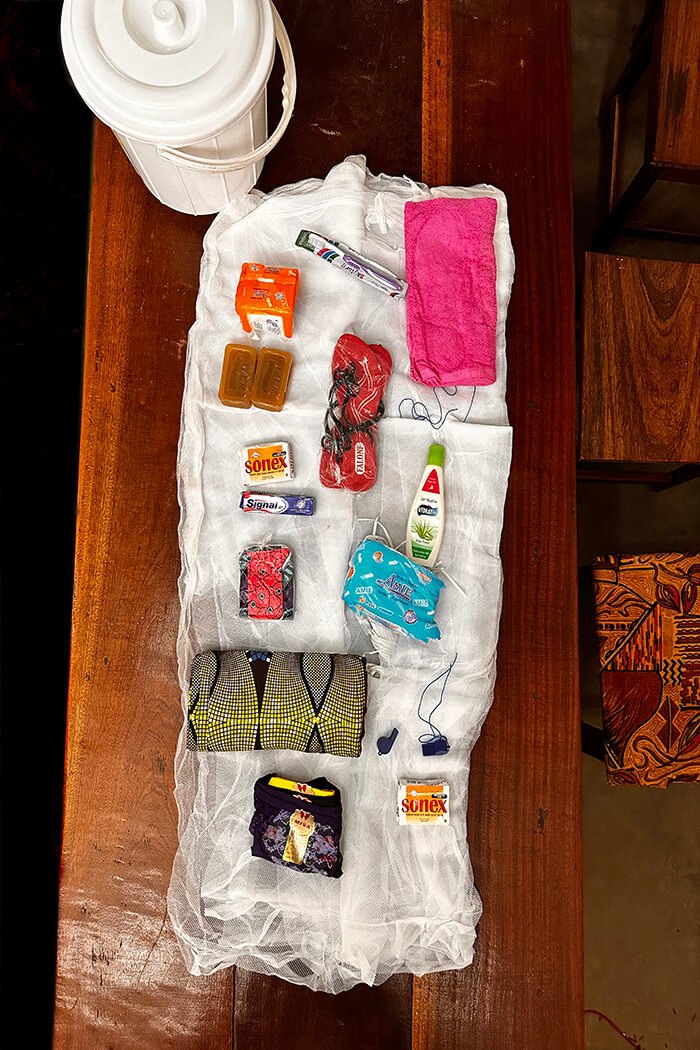
The emergency is so serious that the hygiene kits provided by NGOs include a whistle (which can save their lives). Women are advised not to go out before dawn and to always go out accompanied by a friend or family member.
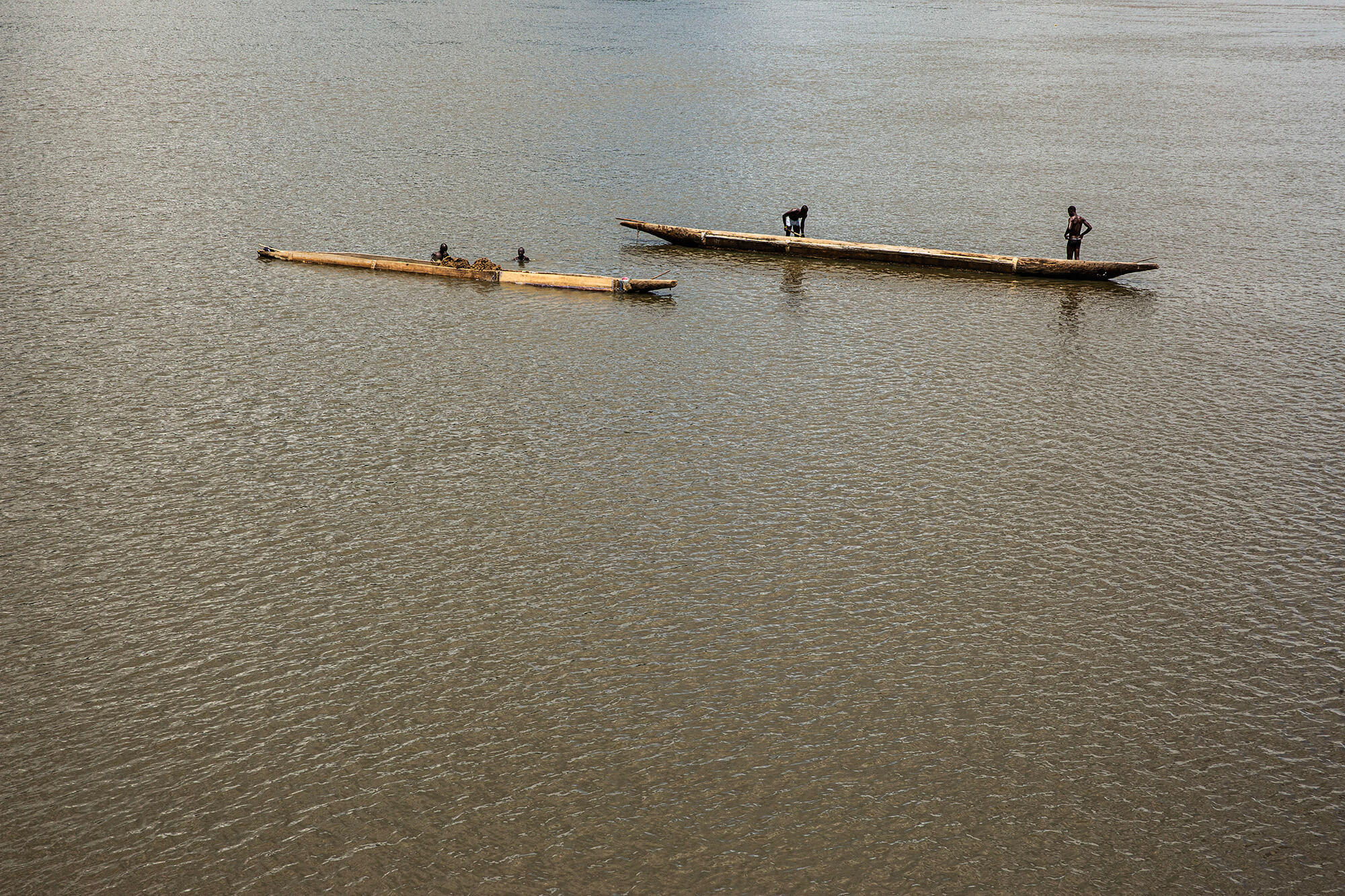
War, poverty and patriarchy
Rape is not just a weapon of war
Attacking women's bodies can be a weapon of war, a strategy of commanders to obtain military objectives like collective punishment, to demonstrate control of territory, to weave alliances or to demoralize the enemy. But there is also opportunistic violence, in which women are mere sexual objects, a kind of collective property of men. The effect in both cases is terror: the systematic violation of babies, girls, women and old women shows that the combatants have lost all respect for the human condition. And there is also patriarchal violence outside the conflict: half of the people treated in Tongolo are acquainted with their aggressor.
Professor Ngbalé-Norbert Richard has been working for twenty years at the Bangui Community Hospital, supported by Doctors Without Borders. With a friendly gesture, he addresses the seven women waiting at the door of his consultation room, a small and simple office with a table buried in piles of papers, and an obstetrical stretcher. "In a war, it's a way to destroy the enemy: when you have nothing, all you have left is your privacy and even that is taken from you," says the gynecologist. "At peak moments in the conflict, we see cases of rape skyrocket, and then they decrease, but they never stop: I've seen girls and boys raped by adult men, grandmothers repeatedly assaulted... girls whose vaginas were filled with stones...", he adds. He pauses for a moment to draw a uterus and injuries from penetrations with objects that can cause fatal bleeding.
The after effects sometimes drag on for a lifetime, as happened to Magali (fictitious name, as she asks that her real name not be published). The soldiers who raped her gave her HIV. Twenty years later she keeps the disease at bay thanks to antiretrovirals, but it is not easy for her. "To take the medication you have to be well fed, but I have four children and I have to take care of them alone because their father abandoned us... Sometimes I don't get everything done". The stigma on HIV carriers is stronger than in Europe, but she feels strong: "I'm a survivor: I don't care what they say; no one chooses to be raped".
No one in the country is immune to sexual violence. Some 11% of the patients who arrived in Tongolo last year are children or men. Alain went to the center three years ago, advised by the head of his neighborhood, the only one to whom he confided that he had been raped. He does not give details of the attack. We don't ask either. "It's very embarrassing and I've kept quiet so as not to expose myself to ridicule."
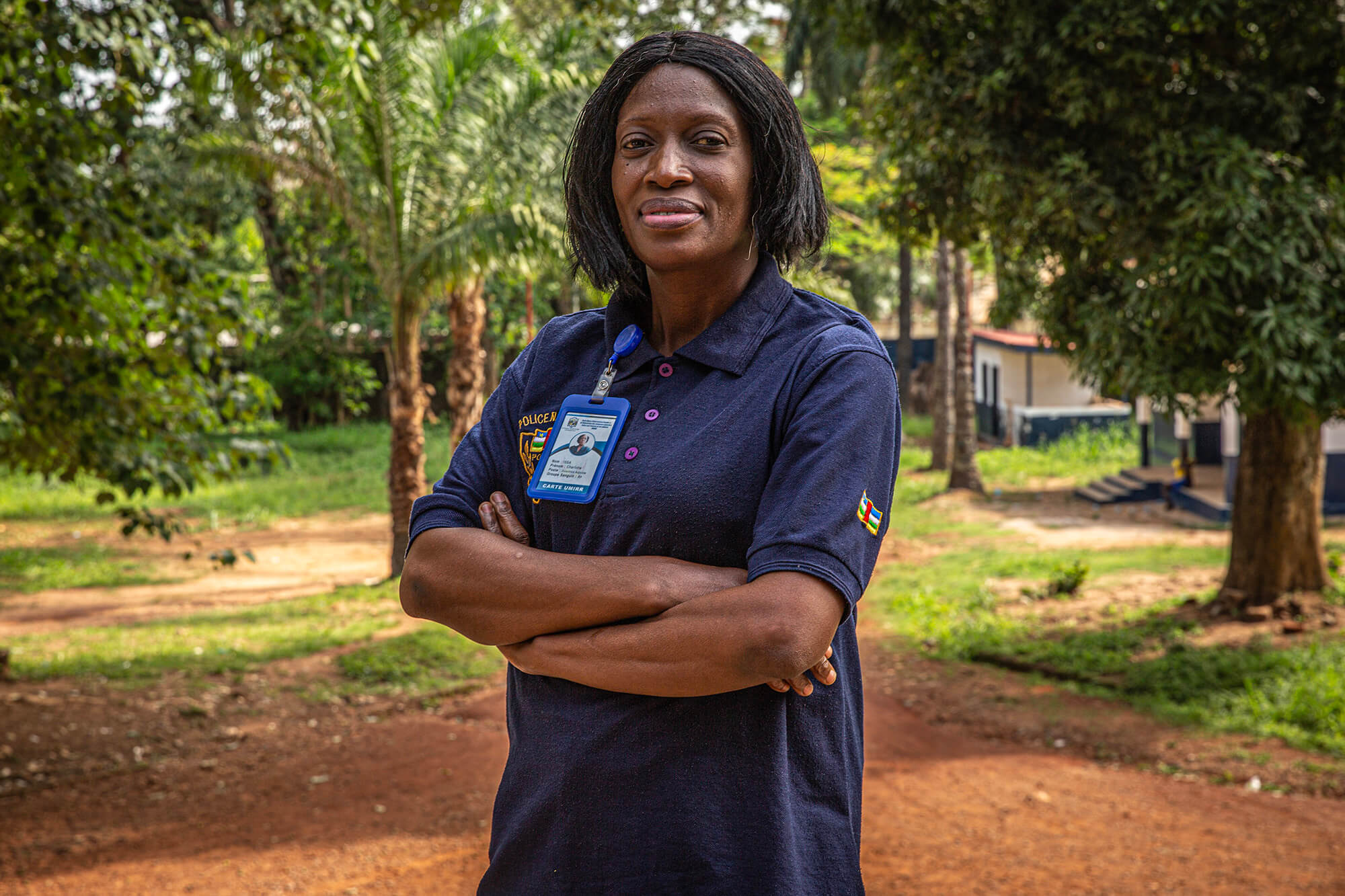
1
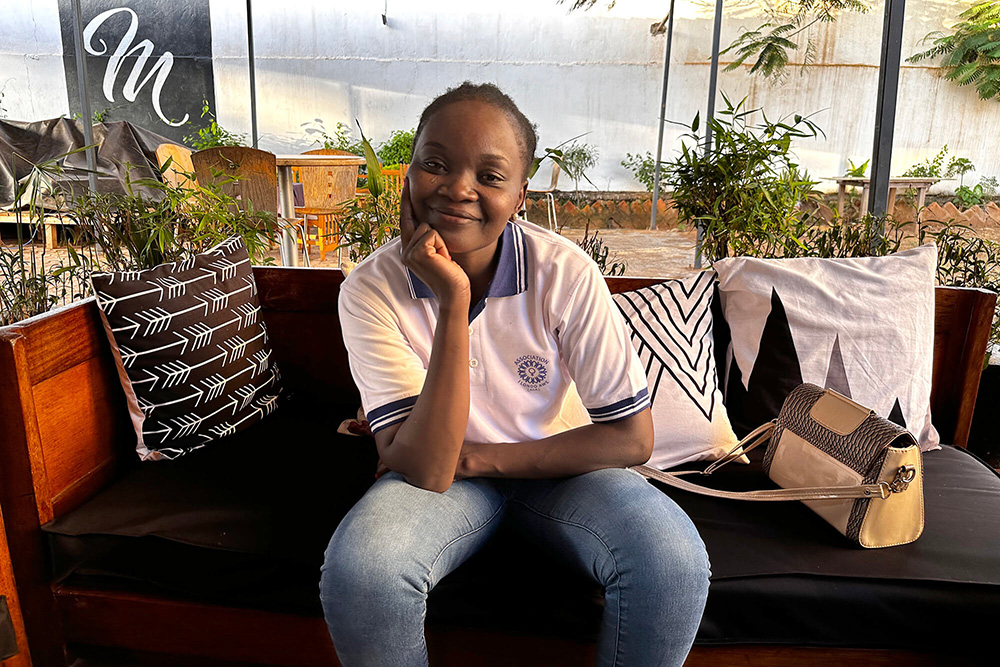
2

3
A phantom statte
Impunity and a vicious circle
Sexual assaults are crimes under the Penal Code and there is even a specialized police unit, but according to its deputy director, Charlotte Issa (1), in Bangui only 19 allegations of rape have come to trial in all of last year. Since there is no functional justice in many cases everything is resolved through economic agreements between the families. "Neither the police nor the judiciary do anything. If a case goes to trial, the judges intimidate the victims by asking them why they were dressed that way, or what they were doing on the street at night. And if they are old women, they make fun of them saying that no one would rape an old woman... This cannot be: we are either free or we are not!", exclaims Rosalie Kobo Beth (2), founder of the association I Londo Awe (Standing). She bluntly denounces the prevailing patriarchy: "From a young age, girls are taught that women must endure. If they complain, if they open their mouths, they are not woman enough."
Although the armed conflict continues, a Truth and Reconciliation Commission was launched seven years ago to help bring peace to the Central African Republic. It is chaired by Edith Douzima (3), who was also a lawyer at the International Criminal Court that tried and imprisoned the Congolese Jean-Pierre Bemba for atrocities committed by his militias in the country in 2002-2003. "We are in a vicious circle due to silence and impunity: every ten years the victims become executioners and the same story repeats itself. We need to know who did what and why. We have had rebellions, coups d'état, war crimes, but nobody knows anything and we have a corrupt judicial system that does not act.... We must know and explain what happened so that future generations learn it at school, instead of studying the First World War", she claims. "And if we don't stop the spiral, sexual violence will continue. They rape and loot, everyone knows it and nothing happens."
Guylaine, 24, watched as the Séléka came to her village in 2014 and murdered her parents and three siblings. She hid in the woods with her sister and there she gave birth to the baby begotten by the men who had raped her. "Grandmother took me in and told me that life must go on... And we have to talk because many girls are suffering the same and stay locked up at home out of shame," she says, looking up. She was a good accounting student, but had to drop out because she had trouble concentrating. Now her dream is to be a midwife: to care for rape victims.
Marie Laurence, the veteran midwife of Médecins Sans Frontières, smiles when she hears the young woman's words. "It is difficult for someone who has studied the most beautiful profession in the world, which is to help give birth to life, to devote herself to healing women who have suffered sexual violence. It's hard to see a 10-year-old girl torn apart inside with a cane. But in the end it's the same thing: our job is to accompany them back to life."
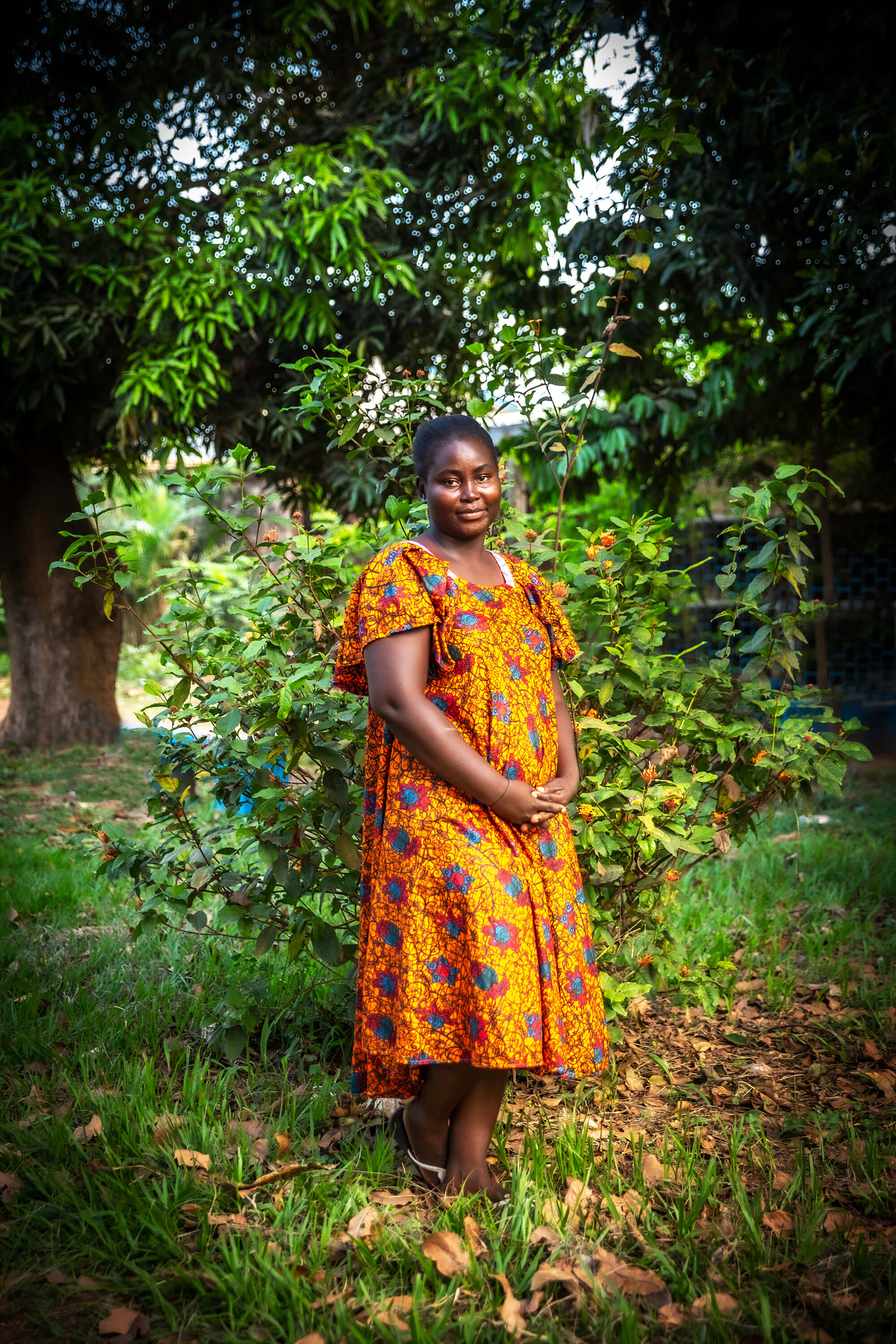
"I want to study to become a midwife so I can help other women who have gone through the same"
Guylaine
With a daughter born of rape, she looks ahead

